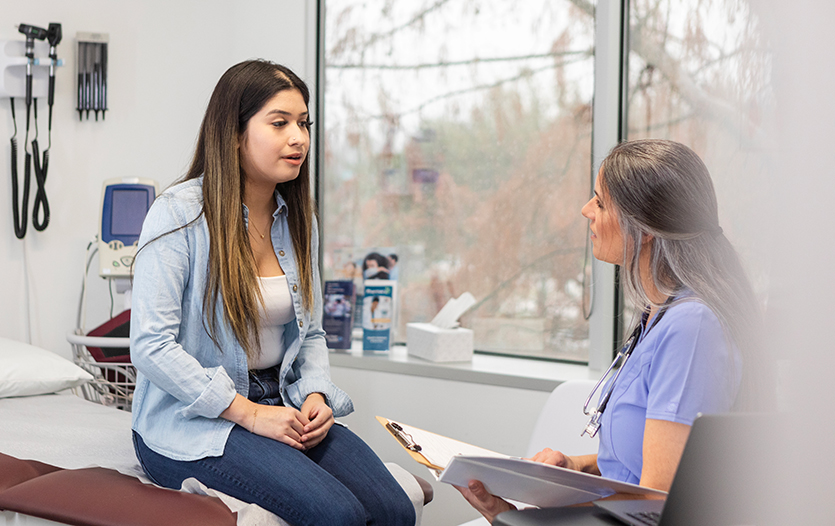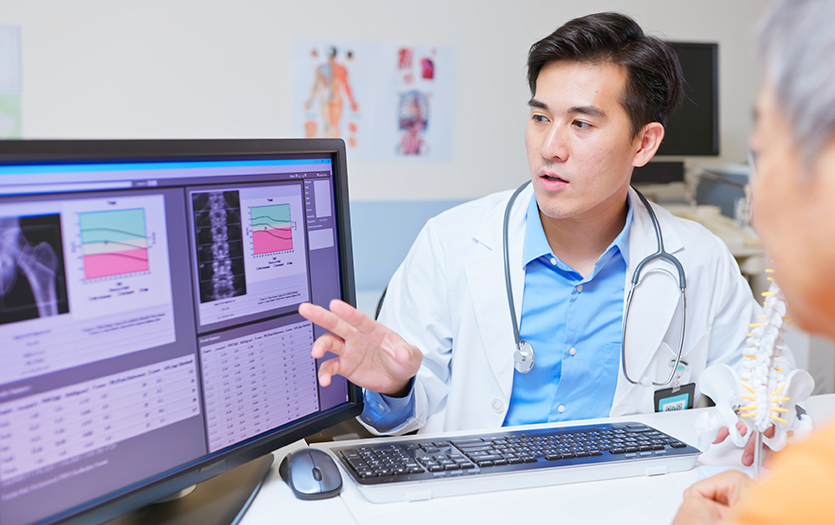.jpg)
Many children contract or have been exposed to RSV at least once before their first birthdays. However, this year might prove to be different. Robyn Schmucker, MD, PPG – Pediatric Infectious Diseases, speaks on the recent rise in cases and the best preventative practices for helping little ones steer clear of this respiratory illness.
Have you seen a rise in Respiratory Syncytial Virus (RSV) cases recently?
Yes, we've actually seen an increase in RSV cases over the past 4-6 weeks. We encountered some during the summer months, but incidences have increased rapidly in the past month. I’ve been practicing medicine for 15 years, and I've never seen this happen before. It’s very strange.
What’s the cause of this recent spike in RSV cases?
RSV, and its varying strains, actually circulate every year. Usually, you build immunity to it, but that immunity wanes over time, which is why we have reinfection year after year. However, this year, there is a theory as to why we are experiencing an upswing. In March 2020, everyone went into lockdown and took extra precautions like wearing masks, frequently washing hands and social distancing. Then, throughout the last school year, everyone was still incorporating these preventative measures, so the virus couldn’t circulate. Because of this, nobody developed immunity to it. So, now that it's re-emerging, we have many new babies and toddlers that don't have any immunity, allowing the virus to spread like crazy.
Do you think being back in school will impact these numbers?
Yes, I think it's going to increase incidences of both RSV and COVID-19. Older siblings could be bringing it home to their infant or toddler sibling without even knowing it. And, if schools don’t have a mask mandate, both viruses are going to spread. Also, a difficulty that my colleagues around the country are experiencing is that children and infants are getting infected with both RSV and COVID-19, making it difficult to determine which one is causing the worst issues.
Who’s most at risk for contracting RSV?
While older children are at risk of contracting RSV, especially if they have a history of prematurity or underlying medical conditions like congenital heart disease, we are more concerned about children 0-6 months of age. Those infants and toddlers are the ones that can get very, very sick from RSV and potentially develop pneumonia or bronchiolitis and have difficulty breathing.
What are the signs and symptoms of RSV?
First and foremost, you know your baby the best. So, if you notice something is different or have a gut feeling, please call your pediatrician or family doctor right away. Unfortunately, RSV can cause cold-like symptoms, including a cough with mucus and nasal congestion, but also present with the following:
- Fever
- Irritability
- Poor feeding
- Wheezing
- Difficulty breathing (faster than usual or apnea)
It’s also important to remember that children don't always develop a fever or present with respiratory symptoms initially.
Is there a way to differentiate between RSV, COVID-19, and the common cold or allergies?
Unfortunately, there’s no way to distinguish between RSV and other health conditions unless you get your child tested. Because RSV can look identical in babies, you must seek guidance from your child’s pediatrician or healthcare provider for an accurate diagnosis.
Prevention
If your child is sick, please keep them home from daycare or school. Also, if a relative is ill or has cold symptoms, please do not take them for a visit. To further reduce your child’s risk of contracting RSV and prevent the spread, we recommended that you also incorporate the following safety measures:
- Wear a mask
- Wash hands frequently (good hand hygiene)
- Clean and disinfect hard surfaces
- Avoid kissing your baby if you have a cold
- Limit exposure to anyone with a cold
- Avoid crowds during peak RSV season
Final thoughts
Please use your common sense. If you have an infant less than two months old, please be very cautious about who you take that child around because they are more at risk for RSV.




